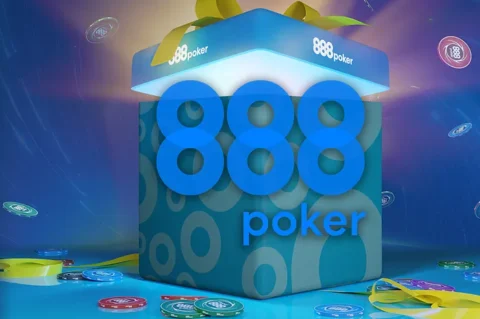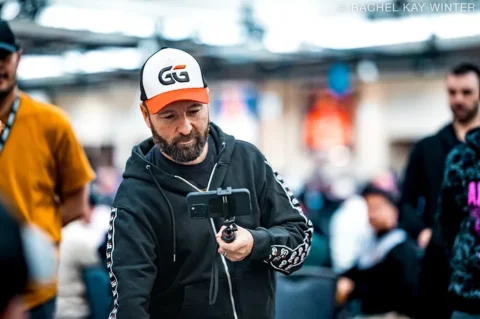The green felt where psychology and maths come to life is simply magic. Poker may seem simple at first, but anyone who has played at the tables knows there’s a huge gap between beginners and veterans. Let’s get into what actually separates them.
The Inner Game of Poker
The first major difference between poker pros and novices is how players think about poker. This determines every decision made at the poker table.
Poker sorts players into two camps. Pros are on one side: armed with strategy, a game plan and discipline. Across from them sit the beginners who rely on luck and gut feeling instead of strategy. Knowing the difference between beginners and pros makes a huge impact on poker games around the world. From Vegas tournaments to GGBet eSports casual poker games, many start to learn against real players.
It’s not just about the player with more chips. When playing, it’s about how it plays and how information is thought about and managing the ups and downs that are bound to come from such play. Both types of players view the game differently. Veterans see each hand as a piece of strategy, while new players see it as gambling.
Decision-Making Patterns
When it comes to betting decisions, the tricks the pros use and the amateurs use are completely different.
The Pro’s Calculated Approach
Veterans base their moves on solid maths and probability. They’ve mastered the pot odds and expected value and know when to fold and when to call. Their decisions follow structured thinking that takes into account multiple factors.
When experienced players bet, it’s always for a specific reason, i.e. to build a pot, extract maximum value or bluff. Each move serves a strategic goal. This way of thinking won’t let them chase lost causes or throw good money after bad losses when the numbers don’t add up.
The Beginner’s Emotional Journey
New entrants buy on emotion, not facts. They go after unlikely draws, call on a whim and can’t fold strong hands even when the writing’s on the wall. The newcomer doesn’t think mathematically like the pros.
Newbies get attached to the hand they’ve already bet on. Even if things go bad with that hand, they won’t let go. This emotional strategy creates erratic play, missing cut-loss opportunities.
Money Management
How you manage your poker money will be the reason you stay in the game at any level.
The Pro’s System
Veterans and newbies manage their money differently. Pros use their poker money as a business and not a game. They don’t risk more than 1-2% of their total in any hand.
Most poker players will go broke because of downswings. They’ve accepted the ups and downs of gambling and are mentally and financially ready for the unfavorable outcomes.When pro players protect their bankroll, they can stay in the game long enough for their edge to make a profit.
The Beginner’s Mistakes
Many new players bring money to the table that their day to day lives don’t require (or bring their whole bankroll). If they’re not following the right steps, they’ll find themselves going to big stakes after a hot streak and so on, or chasing losses by betting bigger and bigger.
When players lose money, they make irrational decisions with their bets. This is called “going on tilt”. When feelings overpower reason, mistakes happen, and things can go south fast.
Reading Opponents and Table Awareness
Poker is played against people and not just cards. Awareness of others around you is what separates the sharks from the fish.
The Pro’s Information Gathering
Experienced players gather information. They observe betting patterns, timing clues and physical tells of hand strength. They pay attention to the whole table. Who’s playing aggressive? Who’s playing tight? And how do their styles interact?
Experienced players know their position at the table gives them an edge throughout their hand. They also play more hands when they have an advantage. The opposite holds true; they play fewer hands when they have a disadvantage.
The Beginner’s Tunnel Vision
Beginners only think about their cards and not much else. They miss important things about their opponent’s tendencies and don’t adapt. They fail to exploit weaknesses in others’ strategies because of this.
Beginners often overlook the importance of their position at the table and play their hands the same way whether they’re first or last to act. Not understanding this basic concept can make them lose to players who use their position well.
Emotional Control
Learning to stay level headed during wins and losses is what separates those who last and those who blow up.
The Pro’s Mental Toughness
One of the biggest differences between veterans and newbies is emotional control. Pros stay logical whether winning or losing. They don’t get too high after big wins or too low after bad losses. This keeps your mind from making bad decisions because of extremes.
Veterans let go of outcomes and focus on the results over the long term. They know individual sessions are more about luck than skill, while long term results show ability.
The Beginner’s Emotional Rollercoaster
Newbies ride an emotional rollercoaster during play. Winning makes them overconfident and play poorly, while losing makes them vengeful and play badly. Having that kind of volatility affects their decision making at the table.
Without emotional control, beginners play inconsistently. They play differently because of their results, not because of why they should. The other players will see this.
Approach to Improvement
Often, how players improve away from the table is the biggest factor in their poker outcome.
The Pro’s Student Mentality
Veterans see poker as a continuous learning opportunity. They read strategy books, study hand histories, talk to other good players, and adjust their game. They know the game changes and education will help them compete.
Most experienced players also do honest self-assessments of their own play to see what they did wrong. By having a learning and improving mindset, they adapt to changing conditions.
The Beginner’s Static Approach
Newbies rarely study poker away from the table. They probably learn a bit about betting, hand rankings and other basics. Without specialized study, they improve slowly or not at all; they learn mostly through other means and rarely through trial and error.
New players also blame bad luck for their losses instead of looking seriously at their own play. This defensive mindset prevents them from making any real improvements and keeps them stuck.














